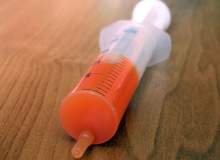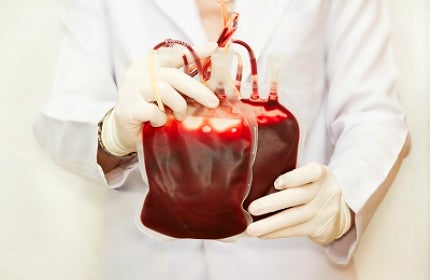
US human cloning breakthrough turns skin cells into embryos

For the first time ever, scientists in the US turned human skin cells into early-stage embryos, which were then used to create specialised tissue cells for transplant operations.
The results of the scientific breakthrough used similar human cloning techniques to those used to create Dolly the sheep 16 years ago. However, unlike Dolly, the scientists destroyed the human embryos after their stem cells were extracted.

Discover B2B Marketing That Performs
Combine business intelligence and editorial excellence to reach engaged professionals across 36 leading media platforms.
The study could possibly lead to new tissue-transplant operations for a range of devastating disorders, such as Parkinson’s disease, heart disease and spinal cord injuries.
Scottish scientists to conduct first human trials on synthetic blood

Scientists in Scotland were granted a licence to manufacture blood that could eventually be tested on people.
Researchers from the Scottish Centre for Regenerative Medicine (SCRM) in Edinburgh will use stem cells to develop synthetic blood on an industrial scale, which will help tackle shortages and prevent infections being passed on through donors, the Press Association reported.
The licence from the UK’s Medicines and Healthcare products Regulatory Agency could lead to the world’s first trials on humans and the eventual regular use of synthetic blood.

US Tariffs are shifting - will you react or anticipate?
Don’t let policy changes catch you off guard. Stay proactive with real-time data and expert analysis.
By GlobalDataFirst H7N9 avian influenza vaccine developed

Scientists at vaccine manufacturer Greffex in May said they had created the first comprehensive vaccine for H7N9 avian influenza, one month after the virus was characterised.
H7N9 avian influenza has infected 126 people in China and killed 24 during the past month.
The virus is transmitted by birds and can spread quickly as infected birds show no symptoms.
Pfizer to sell Viagra online to combat sales of fake pills

Pfizer decided to launch a website to sell Viagra, the world’s leading erectile dysfunction drug, in a bid to stop the escalating trade of fake pills.
The company said Viagra home delivery, powered by CVS Pharmacy and accessible through Viagra.com, will enable patients with a valid prescription to purchase Viagra, Pfizer’s most counterfeited medicine, from a "trusted source".
In 2011, Pfizer Global Security conducted chemical analysis of pills advertised as "Pfizer’s Viagra" from 22 websites that appeared in the top search results for the phrase ‘buy Viagra’.
The results showed that about 80% of these pills were counterfeit.
Spider venom vaccine a future possibility due to new research

Brazilian scientists created a synthetic protein that could one day lead to a vaccination against poisonous spider venom.
In experiments, the synthetic protein protected rabbits from the effects of spider poison.
The spider venom tested belongs to the genus Loxosceles, which injures around 7,000 people a year in Brazil alone.The reaper and brown sugar spider, which can be found worldwide, also belongs to this group.
If a vaccine was developed, it could save thousands of lives a year.
GSK and Save the Children partner to save one million lives

GlaxoSmithKline (GSK) and charity Save the Children joined forces to run two flagship programmes, aimed at saving the lives of some of the world’s poorest children.
The programmes will be focused in sub-Saharan Africa, including the Democratic Republic of Congo (DRC) and Kenya.
GSK and Save the Children announced the partnership last month, saying they hope to save a million lives by making child friendly medicines, widening vaccination programmes, developing new drugs and identifying affordable nutrition products.
Ranbaxy pays record fine in adulterated drugs case

Indian drug maker Ranbaxy Laboratories agreed to pay a record fine to settle a criminal and civil lawsuit related to drug safety.
Ranbaxy said its US subsidiary pleaded guilty to felony charges under the Food, Drug and Cosmetic Act, which prohibits adulterated drugs, and four felony counts of lying to the US Food and Drug Administration about how it tested drugs.
The firm agreed to pay $500m in what the US Government called the largest drug-safety settlement to date with a generic drug manufacturer.
UK scientists hail brain disease breakthrough

Scientists in the UK mapped a pathway that generates "aberrant" forms of proteins at the root of degenerative diseases, such as Alzheimer’s and Parkinson’s.
Researchers at the Cambridge University’s Department of Chemistry believe the breakthrough is a vital step closer to increased capabilities for earlier diagnosis of neurological disorders.
The study builds on research established by Cambridge by Professor Christopher Dobson 15 years ago, when he discovered a ‘toxic species’ – the oligomers – that is small enough to spread through the brain and kill neurons.





